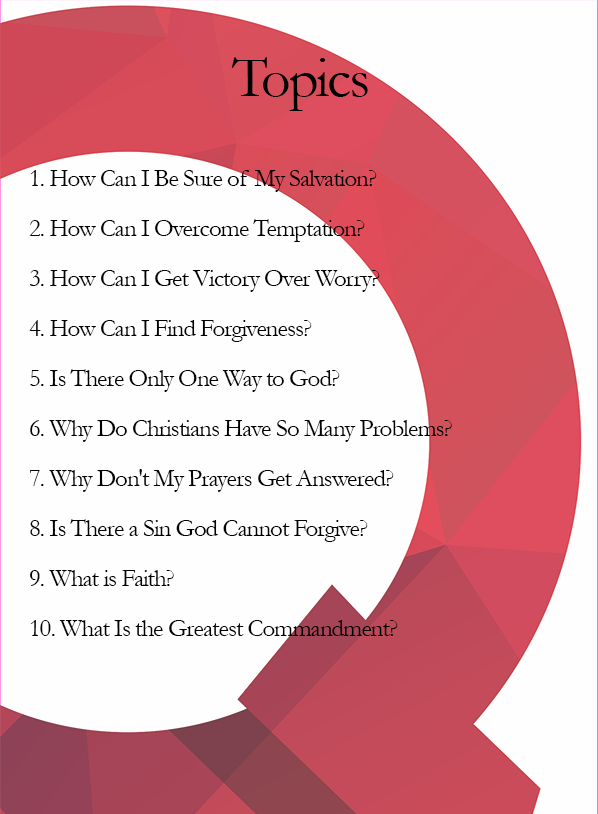
What are the Core Beliefs of Christianity?

Source: wtsbooks.com
Ever wondered what makes Christianity tick? It's a faith based on core beliefs, like believing in one God, the Bible, and Jesus Christ. This simple, basic faith influences lots of people worldwide. Today we dive in!

Source: spreadtruth.com
Belief in One God
Christians believe in one God, the creator. He's all-powerful and all-knowing, a force that made everything. This belief is a foundational concept of Christianity, impacting a person's daily living in big ways. For followers, God is supreme, a source of all. The existence and actions of God influence their outlook on everything.
Jesus Christ as the Son of God
Christians believe that Jesus is the Son of God. They think He came to Earth, lived among people, and showed how to live well. Crucially, Jesus’ life and sacrifice are essential parts of the Christian faith. Many believers find solace in this part of the faith, gaining comfort knowing He saved them. This faith in Jesus Christ defines many followers.
The Bible as Sacred Text
The Bible, the main source for learning about God, is highly valued by Christians. They think it holds messages from God Himself. Many read it to feel close to their God. This important text directs the behavior and thoughts of most Christians. People see God's messages in words. Understanding the Bible guides their spiritual journey.
The Concept of Sin and Salvation
Christians see sin as doing something bad, separating them from God. This concept, important to Christians, is what drove the beliefs. To mend this relationship with God, people seek salvation by believing in Jesus. Understanding God is central to how believers understand sin.

Source: wtsbooks.com
Eternal Life and the Afterlife
Christians believe that those who believe in Jesus will have eternal life in heaven, a wonderful place with God. Those who don't follow or live bad lives might end up in hell after death. Many see this as a key element for finding eternal happiness.
In a nutshell, Christianity hinges on core beliefs around God, Jesus, and eternal life. This faith directs people to live ethically by applying these fundamental teachings to their lives and makes up a great majority of religion in the world.
Additional notes and statistics:
- Nearly 2.4 billion people globally identify as Christians.
- Christian beliefs have evolved through different sects and branches of the faith over history, demonstrating flexibility and resilience.
A Brief History of Christianity
Christianity's story began a long time ago, in the Roman Empire. It had humble beginnings, facing many challenges, then changed dramatically. Its impact on the world is massive. Let's see its journey.
Origins in the Roman Empire
Christianity started around the 1st century AD, a time when the Roman Empire was very powerful. The people believed in different ways back then, in different religions. Early Christians lived amidst these differences. They followed Jesus Christ, who became their main guide. This early Christianity spread among various groups within the Empire.
From Persecution to State Religion
In the early days, followers of this new faith were often persecuted, punished by the powerful Roman leaders. The Roman rulers did not accept early Christianity. Many faced troubles and even deaths because of this religion. Later, though, things changed. Around the 4th century, the situation improved, partly because Emperor Constantine took a different stance on this new faith. The Christians had the support of this new ruler, turning Christianity from a small, suppressed group into one given much greater importance.

Source: org.uk
The Spread of Christianity through Missions
Emperor Constantine's decision drastically changed the course of Christianity. After that moment, this new religion flourished, growing further through missionaries. Dedicated missionaries traveled to different places, sharing their beliefs. This meant spreading Christianity further across the vast Roman Empire. As Christianity spread further and people came together as a larger and broader group of followers, the religion reached far corners of the globe over centuries.
Important Moments & Impacts:
- The Edict of Milan: This critical document legally allowed Christianity in the Roman Empire, letting this new faith exist freely. This event ended many years of difficult situations.
- Missionary Journeys: These efforts took Christians' belief to distant places, forming more communities and showing how people connected with God in different places.
- Shifting Power Balance: Constantine’s acceptance of Christianity brought it to the center stage of the empire's political power.
Christianity's growth was steady, impacting the world significantly from this era of beginnings to the future. A religion originating in such unique historical circumstances shaped by different cultural traditions left an extraordinary impact. The early story had dramatic twists and turns.
Statistics & Figures:
- Christianity grew greatly: Missionaries' hard work and perseverance resulted in a much larger number of believers and spreading the message across different places and peoples.
Major Denominations within Christianity
Christianity has many different groups, called denominations. These groups share basic beliefs but have unique ways of following them. Learning about these differences is like understanding how one large family can be divided into smaller, unique groups. Let's look at some of the major ones.
Catholicism
Catholicism is a large branch of Christianity, with a huge number of followers worldwide. It's known for specific practices and traditions. Catholics have some key rituals and believe in specific things regarding faith. For many, Catholicism provides a clear structure. It plays a large part in shaping culture for many who practice it globally.
Protestantism
Protestantism has many branches and many, many beliefs, also differing. The large groups are still mostly focused on faith based on their individual perspectives, but how each group approaches religion is widely varied. It originated in an attempt to reform the practices of the Catholic Church. Today it comprises a wide range of Christian traditions and beliefs worldwide. Each Protestant group sometimes has differing points and opinions.
Eastern Orthodoxy
Eastern Orthodoxy, another significant Christian tradition, has some historical differences. These traditions emphasize faith practices passed down from earlier Christian leaders. These specific leaders passed traditions down. For people following this way, it can provide very specific directions regarding practice and ways to connect with their spiritual roots.
Pentecostalism
Pentecostalism, one of the more recently formed traditions, highlights a strong emphasis on experiences in believing, making these encounters central to faith for many people following this tradition. Many individuals report feeling that God communicates with them directly. The connection is a crucial component to their practice. Pentecostals believe very much in modern ways of relating to God's presence.
Comparing the Denominations:
| Denomination | Followers (approximate) | Key Distinguishing Features |
|---|---|---|
| Catholicism | 1.3 billion | Strong emphasis on tradition and hierarchy; acceptance of Pope's authority; rituals. |
| Protestantism | 800 million | Variety of denominations, independence from a single governing authority; generally less emphasis on elaborate rituals and sacraments than Catholicism |
| Eastern Orthodoxy | 200 million | Strong emphasis on tradition and historical practices; own set of rules on religious behavior |
| Pentecostalism | 600 million | Significant emphasis on personal spiritual experiences; direct connection to the holy spirit |

Source: cloudfront.net
Understanding these different traditions helps us see how vast the world of Christian faith is. Different beliefs are still tied to basic Christian ideas like faith and devotion. These approaches all come with important religious reasons for the existence of multiple viewpoints and ideas within one belief structure.
Statistics and additional details: These numbers vary based on differing study periods and locations.

Source: gotquestions.org
The Central Role of Jesus Christ

Source: tobystrove.com
Jesus Christ is a central figure in Christianity. His life, death, and resurrection are crucial to the faith. Understanding these parts of his life provides valuable insight. Christians believe his teachings shaped the entire religion.
Jesus as the Incarnation of God
Christians believe Jesus is more than just a teacher or a prophet. They see Him as God's child, or an incarnation of God, physically on earth, embodying divine characteristics. His existence is believed to show a direct relationship between God and humanity, embodying many of the Christian religious values and belief structures. He bridges a gap between heaven and earth, connecting divine and human elements within one person, according to believers.
The Savior of Humanity
For many Christians, Jesus is their savior. He came to earth to deal with sin's negative impact, or so the teachings state, to bring about redemption for humanity's actions. Jesus' actions are a guiding element of what is considered good within Christian religious and social systems. His life demonstrates what a righteous life entails, serving as a model to live a righteous life for individuals and societies alike.
Death and Resurrection
A key aspect of the Christian faith is Jesus' death on the cross and resurrection. His death is believed to offer forgiveness and redemption to followers and offer hope. The Christian concept sees the power in resurrection and new beginnings, which they believe to represent redemption and faith for the individual believer and society at large. The sacrifice is considered vital, demonstrating his selfless dedication to people and to God's intentions. Followers believe his sacrifice and rebirth opened doors to new beginnings and spiritual life in a wider context for everyone following him.
Key Teachings and Impacts of Jesus's Life:
- Love: Jesus’ teachings centered on love, mercy, compassion, forgiveness. This is highly valued, driving individuals to have compassion. His existence was an encouragement toward more empathy and human decency in his followers.
- Servant-Leader: Many interpret Jesus’ life as an example of self-sacrifice and service. People learn of living according to values through him, shaping how society structures community engagement. His leadership demonstrates empathy for fellow human beings in its purest sense, impacting interpersonal relationships positively.
- Hope for the Future: Many find spiritual guidance by accepting Jesus' teachings, providing meaning for life's journey. Many Christians connect with God and spiritual life through faith and actions. He is more than just a model; he also holds potential for eternal life, representing something crucial to Christians for an understanding of living a successful and lasting life according to these spiritual principles.
In summary, Jesus Christ occupies a central role in Christian beliefs. He represents an intermediary between humankind and God and the embodiment of salvation and eternal life, fundamentally affecting religious faith across a variety of groups and believers around the world, demonstrating hope for better connections between humanity and the divine, inspiring a sense of moral duty and self-sacrifice among followers for the benefit of human interaction and relationship-building.
Understanding Christian Ethics
Christian ethics, rooted in Jesus' teachings, provides guidelines for how Christians should live. These ethics are important because they outline the values the faith considers important, influencing followers' actions and their daily lives. These ethics emphasize kindness, helping others, and a moral code, aiming for peaceful coexistence and harmony in the world.
Love and Compassion
Love and compassion are central to Christian ethics. It suggests putting the well-being of others before yourself, a concept seen as incredibly important, often the main point of many of Jesus’ lessons. Followers see that loving others is essential. It shapes one’s daily life toward helpfulness. Christian teachings stress treating all with kindness.
Forgiveness
Forgiveness plays a vital part. Christian ethics say that one needs to forgive those who wrong them. This belief often inspires followers to respond with compassion. Jesus' example sets this as the perfect way to respond, particularly to those who harm you. Christians often emphasize empathy as an action toward being a caring, empathetic member of society. Forgiveness, in Christian terms, encourages more effective interactions, moving away from animosity.
Honesty and Justice
Christian ethics encourage honesty. Living an honest life is a core concept for those who follow these values and principles. This applies equally to all social relations, with this core truth applicable to business interactions, family life, or even everyday relationships. Christian teaching holds being just as essential to a well-functioning community. Following fair rules and considering what is morally correct is key.
The Pursuit of Peace
A fundamental aspect of Christian ethics is a quest for peace. Christians work to resolve conflicts without anger or fighting, looking for ways to settle disputes through empathy and compassion, in line with the example Jesus set. It emphasizes non-violent solutions, urging members of society to focus on harmony and goodwill toward others in every day situations. Living at peace is seen as following Christian values to the utmost.
Connection Between Values and Daily Life:
Christian ethics are actively applied in a person's daily interactions and everyday activities, touching how people conduct themselves. Followers try to be generous with others. Christians seek to live peacefully in society. These principles emphasize helpful actions in society in a daily basis.

Source: cloudfront.net
Christian Values in Practice:
By practicing compassion, forgiveness, and peacemaking, Christians believe they demonstrate a life consistent with Jesus’ teaching, applying these basic teachings from the scriptures directly to everyday living. Followers of this belief system work together to uphold important ideals, applying Christian ethical standards throughout daily situations, making communities stronger and better places, reflecting Christian ideas across society as a whole, with each follower adding to this positive impact.
Christianity in the Modern World: Challenges and Opportunities
Christianity faces difficulties and exciting chances in the modern world. The world is changing quickly. People's views are different than in the past, and followers of this faith have to adapt. This means facing obstacles and using new ways to spread their beliefs.
Declining Religious Affiliation
Fewer people are religiously active today, which is one difficulty for Christianity. People's beliefs are shifting and are no longer connected to organized religions, causing a decrease in church attendance and involvement. This change is global, affecting followers across various places. Fewer people choose to take part in religious activities like traditional church services.
Secularization and Persecution
Secularization means that less importance is placed on religion in daily life. This is another difficulty, affecting daily routines for those connected with this faith. Sometimes, Christians face hardship due to their beliefs. Some areas and countries face increased discrimination against this particular faith. These challenges affect followers in the modern world in difficult ways, with a number of possible repercussions.
Global Evangelism and Spiritual Renewal
Despite difficulties, there are also chances to share the faith globally, showing that Christians still reach people around the world, engaging them through missionary efforts and community projects, and growing this faith among people across the globe. This work means helping others and staying focused on God's intentions in meaningful ways, through personal involvement in this mission and promoting faith in different societies. Spiritual revivals in faith encourage deeper connections with the divine, adding a renewed sense of purpose for Christians, bringing meaning to this religious journey.
Community Engagement and Social Impact
Christians still participate actively in their communities, impacting social projects in various ways, offering support in ways that create positive change for society, impacting all areas around them in hopeful ways and encouraging cooperation to make changes in people's lives. Community engagement and social support represent the important, active presence of Christianity in everyday lives of their community members. Christians' ongoing community involvement demonstrates how much this faith encourages helpful efforts.
Navigating the Modern Landscape:
To succeed, Christians need to find fresh ways to interact with others and connect with people. Followers must consider that today's world is vastly different, requiring new approaches in practicing the religion's ideas to share those beliefs. Followers have to be more flexible and inclusive as they connect with other groups or individuals, making Christianity something they can actively integrate into everyday life.
Conclusion:
The modern world brings both challenges and opportunities. The constant changing needs adaptation and open-mindedness for a successful outreach, demonstrating a thoughtful reflection about their connection and engagement to bring Christian ideas to society, positively and with effectiveness, through more interaction.



